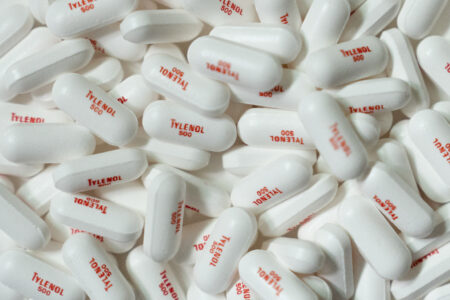With occupational therapists’ help, wrestler returns to the mat

photo by: Tori Gleason/Contributed Photo
Alex Gleason, right, works on resistance exercises with Kathy Randall, a certified hand therapist at the LMH Health West Campus.
Alex Gleason can’t pinpoint the moment she injured her thumb, but she knew something wasn’t quite right. The Olathe North junior walked off the mat at a meet for her summer wrestling club in June and realized it really hurt.
“It was really uncomfortable and I went to the trainer. They said it didn’t seem like an aggressive injury but understood that it hurt,” she said.
When Alex’s pain didn’t improve over the summer, her mother, Tori, knew where to turn for help. Though she lives in the Kansas City metro, Tori knew that Alex would get first-class care at LMH Health OrthoKansas. How? She works as a data analyst for the health system.
“It was a no-brainer for me to bring my daughter to LMH,” Tori said. “They have the only Sports Medicine Physical Therapy residency in Kansas, and I knew the clinicians here would take great care of her.”
Alex met with Dr. Luis Salazar, a sports medicine physician at OrthoKansas, in late August. She immediately felt comfortable with him.
“Doctors are a little intimidating, but I really liked Dr. Salazar. He talked in a way I could understand, made eye contact with me and talked to me, rather than to me through my parent,” she said.
After a set of X-rays, Salazar went over Alex’s symptoms and did a physical exam to assess her injury.
“Because it had been a couple of months since Alex’s injury, the X-rays helped determine that there was not a fracture or other potential issue,” he said. “Based on an exam, I determined that she had an ulnar collateral ligament injury (UCL) in her thumb.”
Salazar said ligaments act as support structures on each side of the thumb. When the ligament is stretched or torn, it causes pain and instability.
“You might hear it referred to as ‘gamekeeper’s thumb,’ as it originated with Scottish gamekeepers who frequently had this injury due to repetitive use of their hands. People often call it ‘skier’s thumb’ because it often occurs when a skier falls and gets their thumb caught on their ski pole,” he said.
Salazar determined that the best treatment for Alex’s injury was to shut the thumb down. Rest and restricting movement in the thumb was key to the healing process. To do that, he walked Alex through the door and into the hands of the occupational therapy team at LMH Health Therapy Services. They created a custom thumb spica splint on the spot, which immobilized her thumb and wrist while allowing her other fingers to move.
“Our occupational therapists are just next door, ready and available to care for patients when we walk them over,” Salazar said. “It’s ideal because they’re able to create a splint that’s fitted to the patient instead of pulling one off the shelf.”
Kathy Randall wholeheartedly agrees. An occupational therapist and certified hand therapist at the West Campus, she knows it is beneficial for patients to have the continuity of care.
“If you go see the doctor, you’re already here. Some people come in from more than an hour away and it’s great to be able to care for them right away instead of having them make an appointment and come back,” she said. “We can get them going on therapy right away.”
Randall said the injury to Alex’s ligament still made the thumb unstable, and the splint allowed the thumb to rest before slowly progressing through treatment. They began working to improve Alex’s active range of motion to get more circulation to promote healing before moving forward with isometric strengthening to increase stability, then added resistive strengthening exercises.
“If you were to put your thumb on top of the base of your index finger and push down, that’s an example of an isometric exercise. It’s not a lot of movement, but you’re putting pressure against pressure to help strengthen and stabilize the joint,” Randall said. “When we moved to resistive strengthening, Alex worked with putty, moving her thumb through certain exercises.”
With Alex’s ultimate goal as a return to wrestling, it was important for her to begin weight-bearing exercises and re-introducing some wrestling moves. Randall said she spent five sessions with Alex from Sept. 6 through Oct. 11, and she passed with flying colors.
“Patients have to put in the work on their own to see improvement, so Alex was doing a lot of the work at home. She didn’t do too much too soon and slowly built up the strength and stability of the ligament. Alex is going to be fine going back to wrestling,” she said.
The high school wrestling season goes from mid-November to February. Alex is back on the mat and has been able to wrestle all season.
“I’m back to normal, if not better than before my thumb was injured. I’m wrestling better than I ever have and I’m healthier than I’ve been.
“I definitely recommend the team at OrthoKansas and LMH Health. I’m still a kid learning to be independent in a lot of ways. It’s nice to have medical professionals who don’t only talk to your parent, they talk to you. I felt really respected by them.”
— Autumn Bishop is the marketing manager and content strategist at LMH Health, which is a sponsor of the Lawrence Journal-World’s health section.




